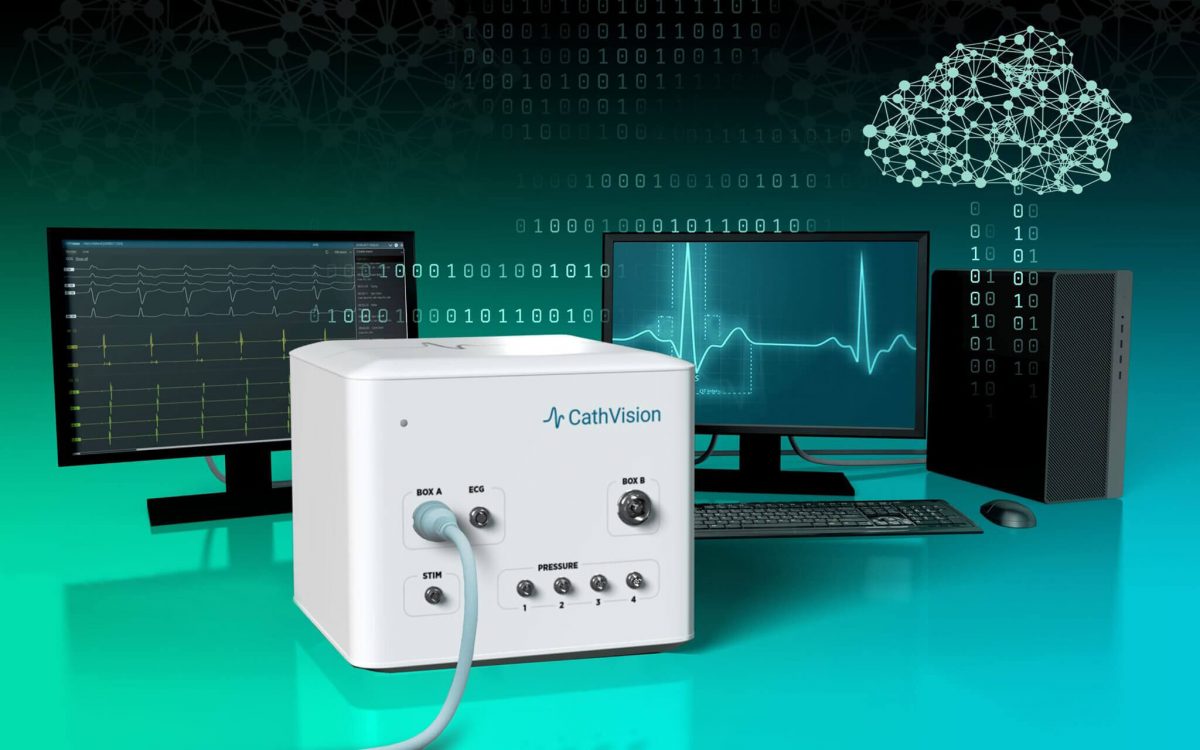CathVision, a medical technology company developing innovative electrophysiology solutions in EP recording technology, today announced the first patient enrollments in the PVISION multicenter clinical study.
The newly launched trial will investigate the automated assessment of pulmonary vein isolation (PVI) using the company’s first licensed artificial intelligence (AI) algorithm, a PVI analyzer, in combination with the ECGenius System, CathVision’s novel EP recording technology and amplifier. PVISION is expected to enroll 90 patients at four clinical trial sites in Belgium and France with completion by the end of 2021.
Cardiac signals acquired by traditional EP recording systems are often of suboptimal quality and riddled with noise, preventing the accurate analysis and interpretation of those signals during the diagnosis of atrial arrhythmias. This also makes the integration of artificial intelligence algorithms very difficult. Developed by Dr. Mattias Duytschaever and Milad El Haddad at the University of Ghent, and bolstered by the high-quality, low-noise cardiac signals acquired by CathVision’s ECGenius System, the PVI analyzer is the first and only signal-based algorithm capable of confirming PVI endpoint across multiple cardiac ablation modalities when physicians are treating complex arrhythmias like atrial fibrillation.
“Today’s complex cardiac ablation procedures involve the insertion of multiple electrode catheters into the heart in order to collect and interpret thousands of cardiac signals,” said Principal Investigator Mattias Duytschaever, M.D., Ph.D., AZ Sint-Jan, Bruges, Belgium. “Because the ECGenius System provides us with exceptional low-noise, high-quality signals, we will be able to better examine the efficacy of using the PVI analyzer algorithm during this particular trial to determine if electrical isolation of the pulmonary veins has been achieved. This creates the possibility of an automated, objective and standardized endpoint for the PVI procedure, which could lead to improved patient outcomes.”
“Algorithms powered by artificial intelligence will play an integral role in further developing the capabilities of EP recording technology, but the success of those algorithms and the positive impact they could have on patient outcomes is dependent on our ability as an industry to deliver EP recording technology that provides exceptional quality cardiac signals that exceed the current industry standard,” said Mads Matthiesen, CEO, CathVision. “The PVISION study is the perfect opportunity to demonstrate the importance of enhanced EP recording technology and AI algorithms in shaping the future of diagnosing, characterizing and treating complex arrhythmias.”
Enrollment in PVISION is underway at AZ Sint-Jan (Bruges), UZ Gent (Ghent), UZ Brussel (Brussels) and Clinique Pasteur Toulouse, with several enrollments already confirmed at each site.
